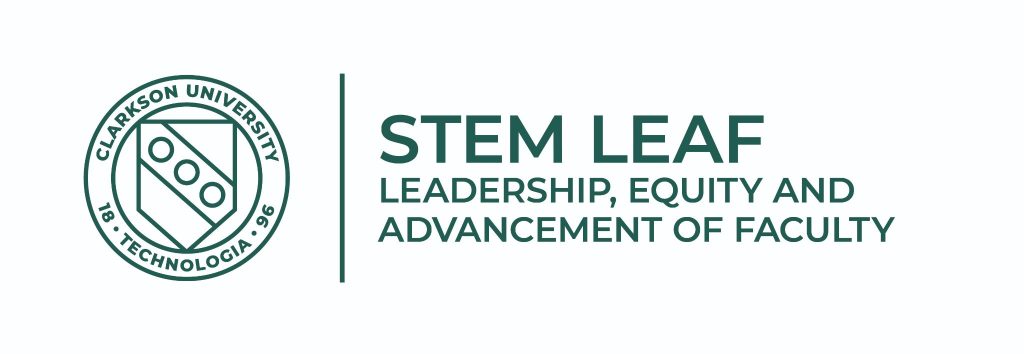
Welcome to the June edition of the STEM LEAF/ADVANCE Newsletter!
Clarkson’s NSF ADVANCE grant is designed
1) to effect positive institutional change around reduction of implicit or unintentional bias associated with gender and intersectional issues of race, ethnicity, country of origin, sexual orientation, and disability,
2) to systematically and equitably support the development of inclusive leadership skills and the professional advancement of women STEM faculty, and
3) to implement sustainable, systematic changes across the University in support of these goals.
Resources/News
(Starting with one co-written by Associate Professor of Management, Amber Stephenson!)
Women in Leadership Face Ageism at Every Age by Amy Diehl, Leanne M. Dzubinski, and Amber L. Stephenson in Harvard Business Review
“Gendered ageism sits at the intersection of age and gender bias and is a double whammy where there is “no right age” for professional women.”
A mental-health crisis is gripping science – toxic research culture is to blame by Shannon Hall in Nature
“Researchers are much more likely than the general population to experience depression and anxiety. And although the COVID-19 pandemic caused an increase in mental-health struggles, many argue that it only exacerbated problems that were already present. The recent studies, which have collectively surveyed tens of thousands of researchers worldwide, suggest that scientists’ mental-health struggles are a direct result of a toxic research culture.”
Sacrificing body and mind: Pretenure women faculty of color, their health, and well-being. By Martinez, M. A., Glover, K. T., Ota, M., Long, T. A., & Ureta Viroga, M. M. L. in Journal of Diversity in Higher Education
“This study utilized a qualitative secondary data analysis design with an intersectional perspective to ask: How does academia shape or impact the health and well-being of women faculty of color (WFOC) as they navigate the tenure track?”
Increasing Women’s Representation in STEM Fields by Nina Gray in Inside Higher Ed
“Established faculty members and administrative leaders within academe hold several keys to addressing underrepresentation. Faculty should purposefully assess whether they include, recognize and welcome women and their voices—and then take steps to correct the well-documented tendency to undervalue our work.”
Juneteenth in STEMM and the barriers to equitable science by 52 black scientists listed in the publication in CellPress
“Given the continued exclusion of Black scientists at different levels of STEMM training, it is important to recognize the relevance of Juneteenth as well as how it may contribute to future improvements. We offer steps that institutions, as well as wider bodies, should take to reduce the impact of racism in science. Importantly, we further consider Juneteenth a pillar for growth and propose steps to improve mentoring, institutional support, and training to reduce remaining institutional barriers.”
UMass ADVANCE has shared three news tools to aid faculty in creating, continuing, and crediting equitable collaborations:
Creating Equitable Research Collaborations
Continuing Research Collaboration Relationships
Crediting Collaboration Equitably
If you have any questions or concerns, please feel free to contact us at advance@clarkson.edu. If you’d like to keep up with information like this regularly, you can follow our Twitter account @ClarksonADVANCE. (Our PI team consists of Marc Christensen, Jen Ball, Laura Ettinger, William Jemison, & Stephanie Schuckers. Our Project Director is Sarah Treptow.)